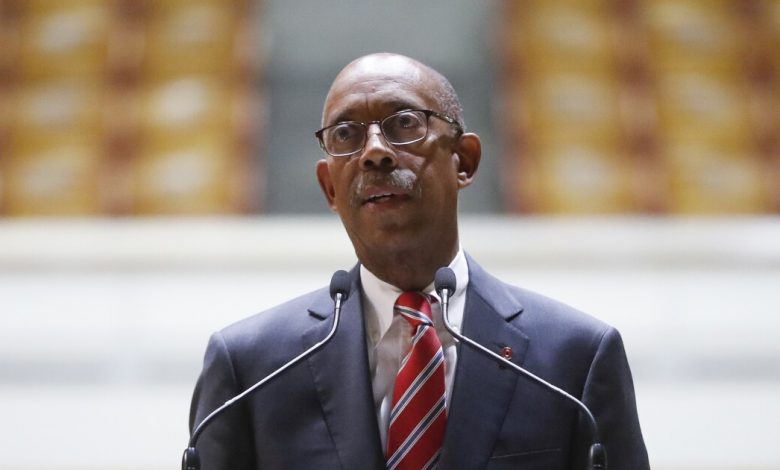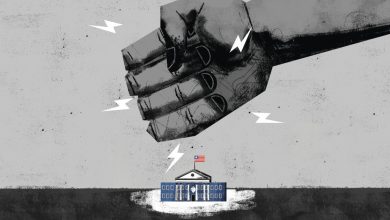Native American Students Can Now Attend U. of California Tuition-Free

[ad_1]
Native American students who are California residents will no longer have to pay tuition or fees at one of the nation’s largest public-university systems — a decision that some say is a long-overdue acknowledgment of past harms.
The University of California system said this week that all in-state students who are members of federally recognized Native American, American Indian, and Alaska Native tribes will have tuition and fees — about $14,000 each year — waived starting this fall. Then, on Wednesday, one of California’s recognized tribes announced a $2.5 million scholarship fund that will cover tuition and fees for in-state students from unrecognized tribes.
The UC system’s decision affects 500 undergraduates and 160 graduate students who are members of federally recognized tribes, a spokesperson said. Native American students make up less than 1 percent of the UC system’s total enrollment.
University officials said they’d use a combination of existing state and institutional financial-aid programs, as well as other resources, to pay for the waivers.
“There’s huge implications being a land-grant university, because the sale of Native land that was taken in a number of ways — but primarily stolen — really helped start the university system,” said Phenocia Bauerle, director of Native American student development at the University of California at Berkeley.
The UC system is not the first institution to offer tuition waivers for Native students, but its program is more comprehensive than others, said Bauerle, who is a member of the Apsáalooke (Crow Nation). Universities will not require a demonstration of financial need, and its waiver offer extends to all California residents who are members of federally recognized tribes, including 109 in the state.
Native American students who are already enrolled should also qualify, as will graduate students, said Mishuana Goeman, a professor of gender and American Indian studies at the University of California at Los Angeles. Goeman also serves as special adviser to the chancellor on Native American and Indigenous affairs.
“I think this is really important in terms of making their quality of life better, in making the retention rates increase,” said Goeman, a member of the Tonawanda Band of Seneca. “And again, we can compete with those other schools that are offering complete packages and such.”
The tuition and fee waivers, part of the UC Native American Opportunity plan, will expand student diversity and make UC campuses more affordable and accessible for the state’s Native American students, according to a letter from Michael V. Drake, the system president.
“The University of California is committed to recognizing and acknowledging historical wrongs endured by Native Americans,” Drake wrote in the letter.
Filling a Gap
While the UC system’s program does not cover students from tribes that aren’t federally recognized, the Federated Indians of Graton Rancheria has stepped in to fill that gap.
Greg Sarris, its tribal chairman, said he got a call from Drake a few months ago. The university-system president said, according to Sarris, that he wanted all of the state’s Native students to go to UC campuses tuition-free.
But there was a hitch: The university system could waive tuition for members of federally recognized tribes only, since they are sovereign nations. Proposition 209, which bans affirmative action in California and prohibits discrimination by the state and other public entities, prevented UC officials from extending that same offer to members of tribes not federally recognized.
So, Sarris said, the tribe’s new scholarship fund will cover tuition and fees for those students, as well support any additional needs of students from federally recognized tribes.
As someone who went through college as a member of a tribe not recognized by the federal government, Sarris understands the hardships those students can face. Now, as a tribal leader, he wants to help do something about it.
Sarris sees the scholarships as a chance to set a national model for other tribes to partner with universities and create opportunities for Indigenous students to attend their states’ universities tuition-free.
“As an American Indian that went through the school system and saw the benefits of what higher education can do in terms of shaping me as a leader for my people, able to speak the language of finance and government, it’s crucial to a tribe’s continuance and success,” Sarris said.
Bauerle also understands firsthand the effect that waiving tuition and fees can have on Native students. It gave her the opportunity to get her undergraduate education at Montana State University. The Montana University system requires eligible students to demonstrate financial need for the waiver, and it does not include university fees.
“For me, this is really important for Native students who come from those tribes to be able to know that their tuition is covered and not stress that they’ve got to find additional financial aid to cover whatever is not covered,” Bauerle said.
Goeman said she hopes that the UC system’s efforts move the needle on enrollment and attainment of Native students. She stressed, though, that the decision was not intended to grant preferential treatment.
“This is actually about doing what is ethically and morally right,” she said, “and a repatriation for past wrongs.”
[ad_2]
Source link






